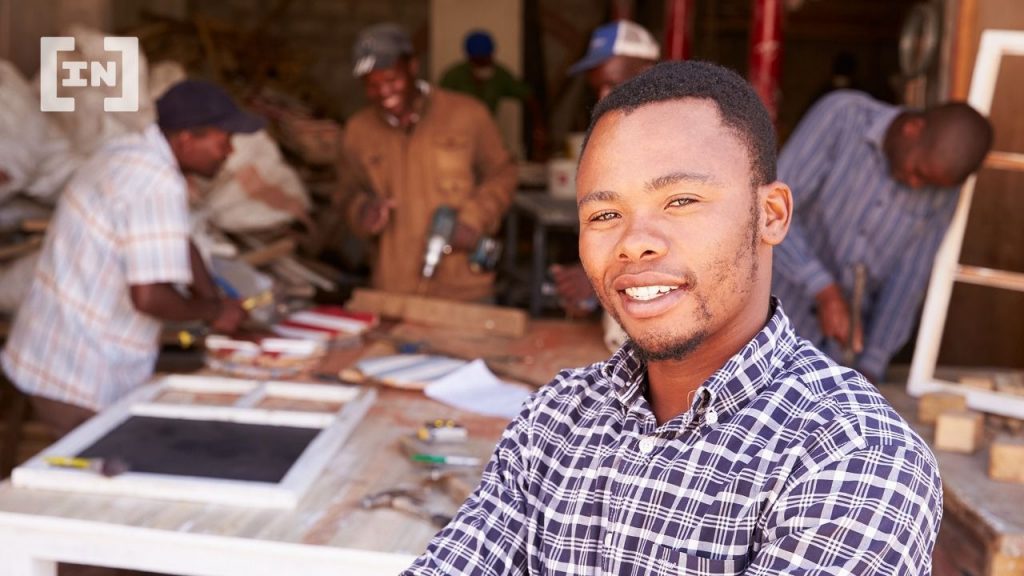DeFi Will Accelerate Financial Inclusion Around the Globe

DeFi has the potential to solve inequality and unlock financial freedom for people around the world, says Brendan Playford, the founder of Masa Finance.
The American dream is the belief that anyone, regardless of background or socioeconomic status, can achieve upward mobility and build generational wealth. However, the traditional financial system has left behind huge segments of the population that have little or no means to build credit and fully participate in the global economy.
Today, individuals worldwide must provide extensive proof of existing credit, while also consenting to a background check before even being considered for loans, leases, and credit cards. Unfortunately, those born into financially stable circumstances have a huge advantage when it comes to building and sustaining an adequate credit score. Those attempting to escape financial hardship are often penalized for the very same reasons they are struggling. Over time, the credit bureaucracy has morphed into a vicious cycle that strays far from the American dream.
The faults of the credit bureaucracy
Unfortunately, the pandemic only widened the financial inequality gap. Today, the top 1% of Americans now own more wealth than the bottom 92%, with the 50 richest owning more wealth than the bottom 165 million. Furthermore, people at the bottom of the wealth pyramid have limited access to financial education and products. The tools they do have access to are mainly high-cost credit and loans. While these loans can be life-saving in an emergency, they tend to create a debt culture that preys on people who lack financial literacy and don’t have savings to fall back on.
As a British native, I struggled first-hand to build credit after immigrating to the United States. This experience inspired me to build a solution to help those typically left behind by the traditional financial system. Today, that solution, Masa Finance, is on a mission to disrupt the inequality paradigm and unlock financial freedom for people around the world by making access to credit and wealth creation available to anyone through decentralized finance.
DeFi and its potential
Decentralized finance (DeFi) is an umbrella term that includes applications such as decentralized exchanges, margin trading, stablecoins, and prediction markets. This emerging philosophy of banking and financial services is rooted in peer-to-peer transactions via blockchain technology. Through the blockchain, DeFi enables “trust-less” banking, cutting out the traditional financial middlemen such as brokers or banks. DeFi has been a revolutionary force for financial inclusion, as it grants the underserved access to digital assets and financial technology without traditional barriers.
Mobile technology and digital payments are driving fintech innovation to better serve people throughout the wealth pyramid. But the current paradigm still struggles to provide fair and equitable access to foundational, wealth-building tools and products such as investments, savings, and responsible lines of credit. DeFi has the potential to solve this inequality paradigm and unlock financial freedom for people around the world. It can do this by making access to credit and wealth creation available to anyone.
Benefits of DeFi for consumers include improved security, lower costs, more services that benefit marginalized groups, and the ability to build wealth through crypto holdings. These benefits are offered through decentralized apps (dApps) created by various organizations.
However, participating in DeFi at this time is not necessarily easy. One of the main drawbacks of DeFi is the barriers to entry for those unfamiliar with the space. There are an enormous amount of decentralized apps (dApps) and investment opportunities to choose from, which may deter some from adoption. DeFi will gain more traction in the mainstream as the space consolidates and dApps evolve to become more user-friendly.
DeFi loans: how do they work?
The DeFi lending concept offers users crypto loans through a trustless, secure process. Lenders may deposit fiat currency on the platform to be approved for lending. In exchange, they receive interest on their assets. For collateralized loan models, a loan borrower deposits crypto assets as collateral in order to receive a fiat loan. The borrower will get their assets back after paying back the loan. If a borrower takes out an uncollateralized loan, they still have to pay back the loan plus interest.
Unlike traditional lending, where loans are mediated by biased humans, DeFi systems automate all these processes. This is a fairer system as assessing the qualifications of each applicant is more accurate and objective on the blockchain.
DeFi increases consumers’ investing and purchasing power and provides them access to markets and capital that traditional finance does not. If people can link their CeFi and DeFi assets, they can unlock access to uncollateralized loans and other financial products that may have previously been out of reach.
By eliminating intermediaries, DeFi will create a more equitable financial system and reduce friction for all users.
About the author

Brendan Playford is the founder of Masa Finance. Masa is on a mission to bring the next billion people to DeFi, by building a more equitable credit system that unlocks choice and opportunity for 4.95 billion people. The vision is to build a new on-chain credit bureau functioning as a DAO.
Got something to say about DeFi or anything else? Write to us or join the discussion in our Telegram channel. You can also catch us on Tik Tok, Facebook, or Twitter.
Disclaimer
All the information contained on our website is published in good faith and for general information purposes only. Any action the reader takes upon the information found on our website is strictly at their own risk.














